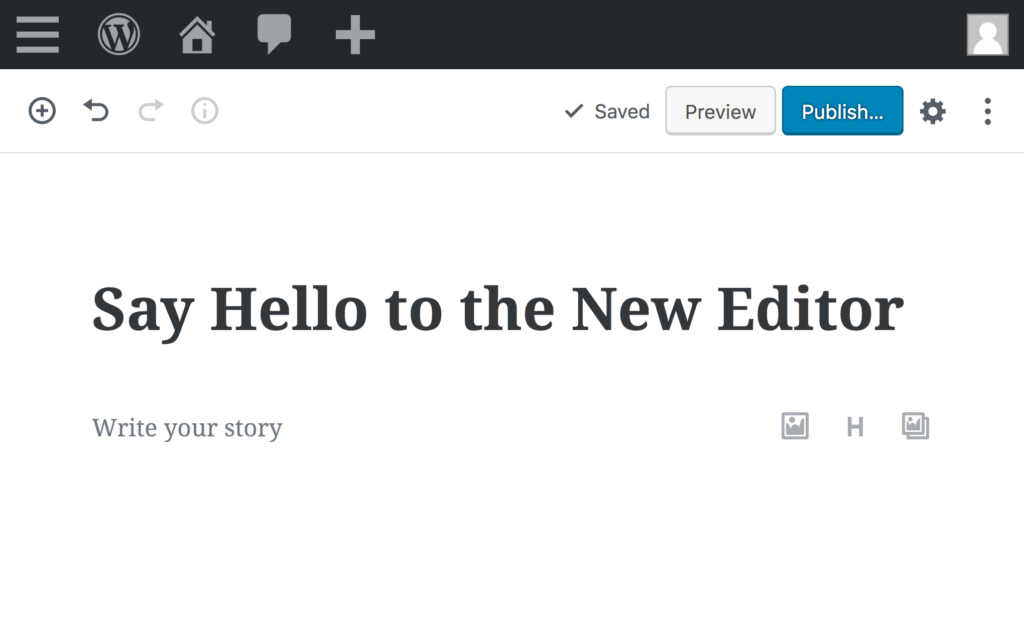We got to the Music City Center a little earlier than most because we didn’t account for the 1 hour time gain between Eastern and Central time zones. As 9am approached I watched the large room we were in begin to fill with techies, marketers, developers, designers, and more. When the annual international Wordcamp for 2018 kicked off there was a lot of buzz about what the next year held in store for all of us in the room. Anxiety over some of the biggest changes WordPress has undergone since its inception was tangible. Most of us in this room had built a significant portion of our livelihood on the dependability, user-friendliness, and relatively low cost of using WordPress.
At Epic Nine, 99% of the sites we develop are WordPress sites.
Several years ago I made the decision to go with WordPress because it is supported by a worldwide community of developers. It is still the best choice when user friendliness and versatility are important. A decade ago some of the contenders included Droopal, Joomla, and the CMS I cut my teeth on, Text Pattern. Now the challengers include SquareSpace, Wix, and any number of up-and-coming CMSs. Some of them put emphasis on user-friendliness and sacrifice versatility, or vice versa. The new changes in WordPress 5.0 launch WordPress into a class of its own, where it has the potential to be the most user-friendly website platform as well as the most versatile.
Up to this point, I had always taken the WordPress community for granted.
They don’t demand recognition or exact any sort of fee to use the software that powers close to 1/3 of all websites on the internet. In my mind, the community behind the advancement of WordPress had been a quiet giant neither soliciting nor requiring much attention. That was about to change.
The conference itself was incredible.
We had the opportunity to sit at the feet of people who have helped design, build, and optimize more of the web than any other group of people alive. However, many of those in attendance, including myself, had built their livelihood around this software that for the most part had continued along a fairly straight upward trajectory and the changes with WordPress 5.0 threatened that. It didn’t take long for me to see that many of the rumors of this threat were based more on laziness and an unwillingness to change with the times than legitimate fears that the new WordPress would make website development worse.

The main change in WordPress 5.0, the new editor dubbed ‘Gutenberg’, had undergone a year of scrutiny with beta trials and continual rebukes from the active online community. The pre-launch Gutenberg plugin still has a 2 star rating on wordpress.org. People are naturally opposed to change. Web designers and developers aren’t any different. And while this change requires more work on our part (we had spent 7 years focused on PHP – Gutenberg relies mostly on JavaScript) it will make the lives of our clients much easier and ultimately make the web even better. The mission of the WordPress community has been to democratize publishing. It has made it extremely simple for anyone to launch a blog or craft a website. When the power of Gutenberg is harnessed in the hands of a talented designer/developer it gives that mission superpowers.
So what does Gutenberg do exactly?
Colby, our resident WordPress developer will dissect it in a future blog post. But in a nutshell, it allows users to not only create content but to also create layouts and design elements straight in the editor without the need for 3rd party plugins.
And while Gutenberg is a huge step forward for the WordPress community it is only a small part of a much larger picture. The last day of WordCamp focused on improving WordPress. Sunday at 10am we walked into a large hall where hundreds of volunteers were divided into teams of developers, designers, and marketers. They were all working to make this software better… for free. Some dedicated to making sure it performs faster. Some more securely, and more efficiently. Others were passionate about making sure it was accessible to all users, including those with disabilities. And there were others who were working to make sure the admin area was as user-friendly as it could be.
The mountain of processes, revisions, and systems that this group has dedicated to WordPress would give enterprise software companies a run for their money. Other software companies donated paid developers to help make WordPress better. They are a part of an initiative called Five for the Future. A program where businesses that benefit from WordPress give 5% of their resources back to its development and progress.
So, why do we build most of our sites in WordPress?
Because it has survived a decade and a half. It has outlasted most of its competition to this point. It is still on an upward rise as the internet continues its evolution. I often tell our clients that if you can imagine it on the screen, we can make WordPress do it. And with the constant progression of this platform, we can say that even more confident than before.





